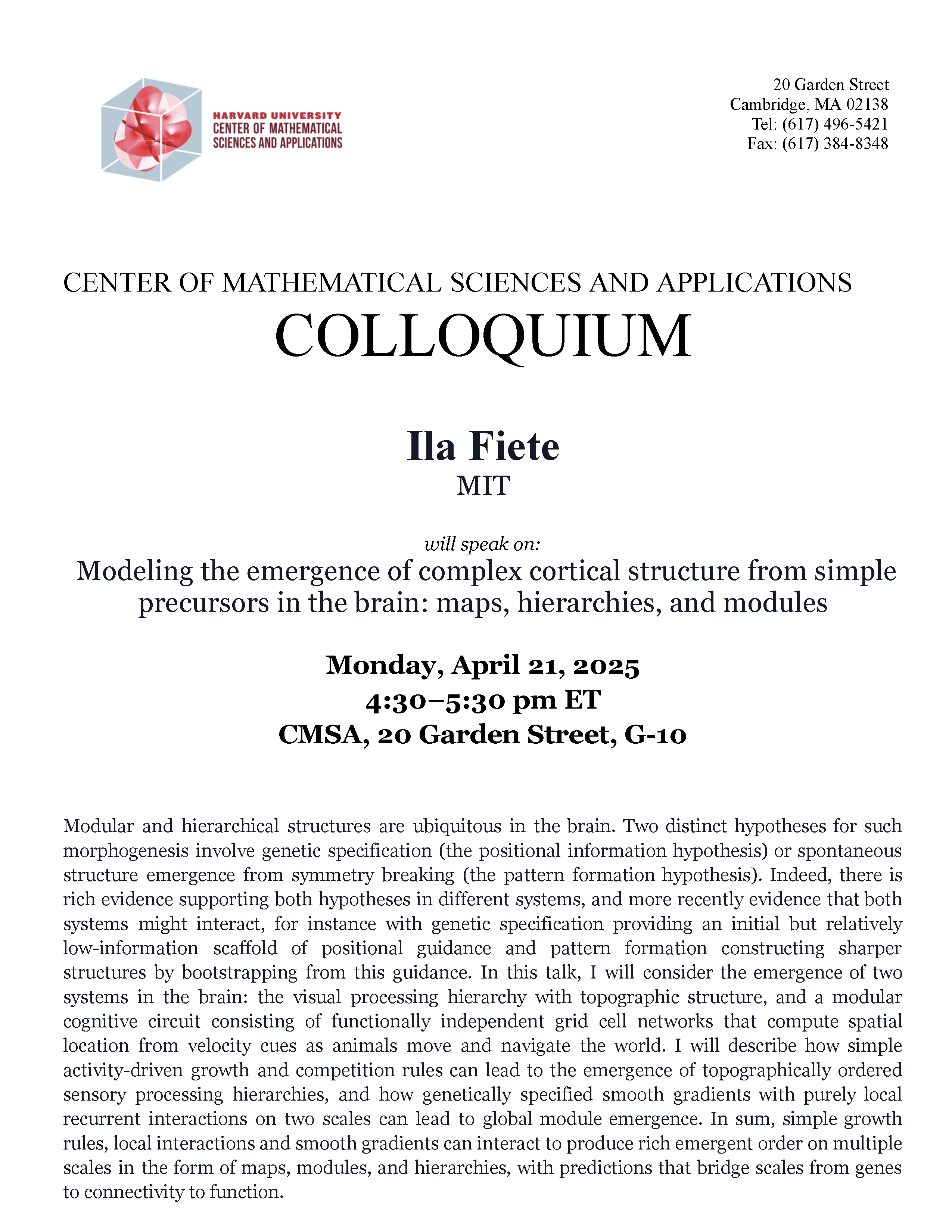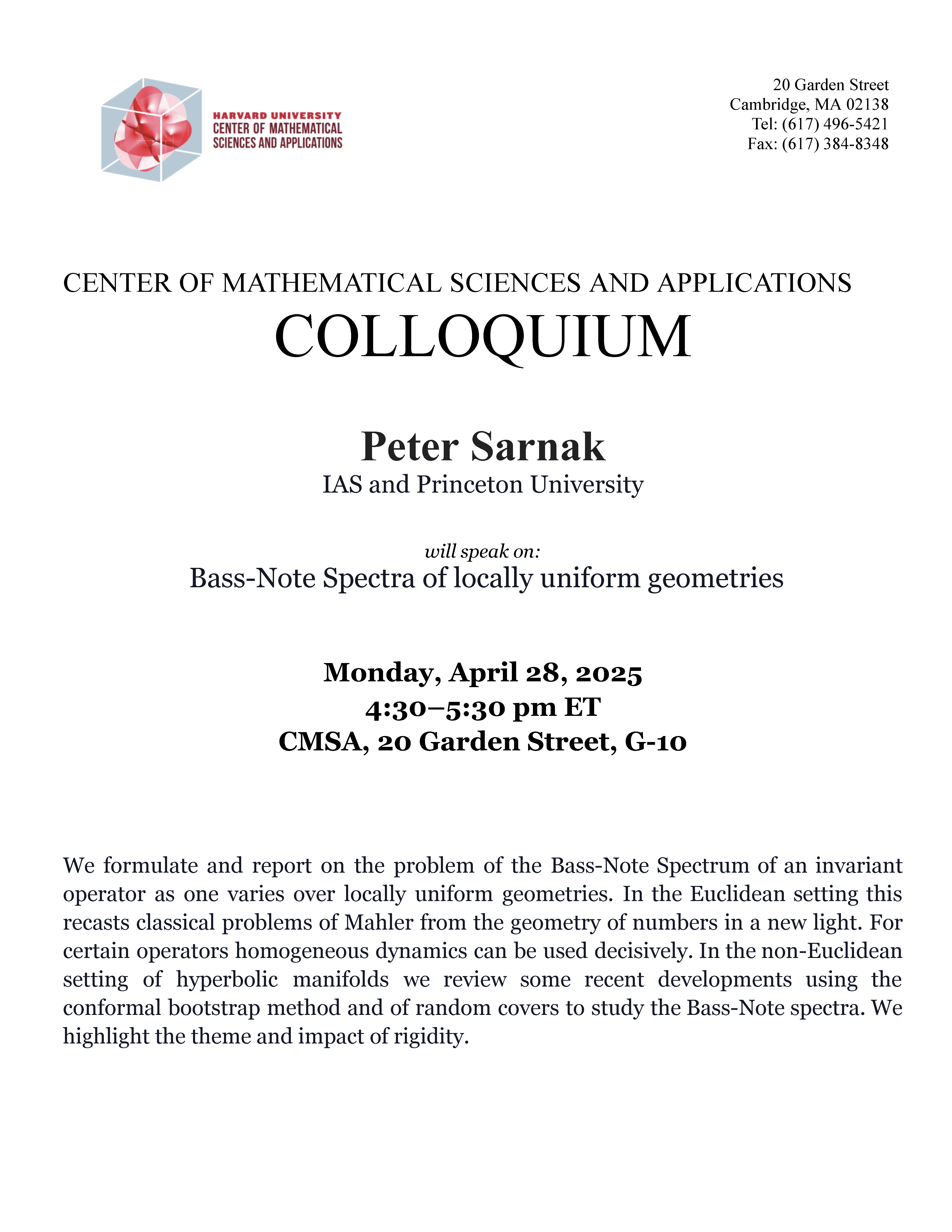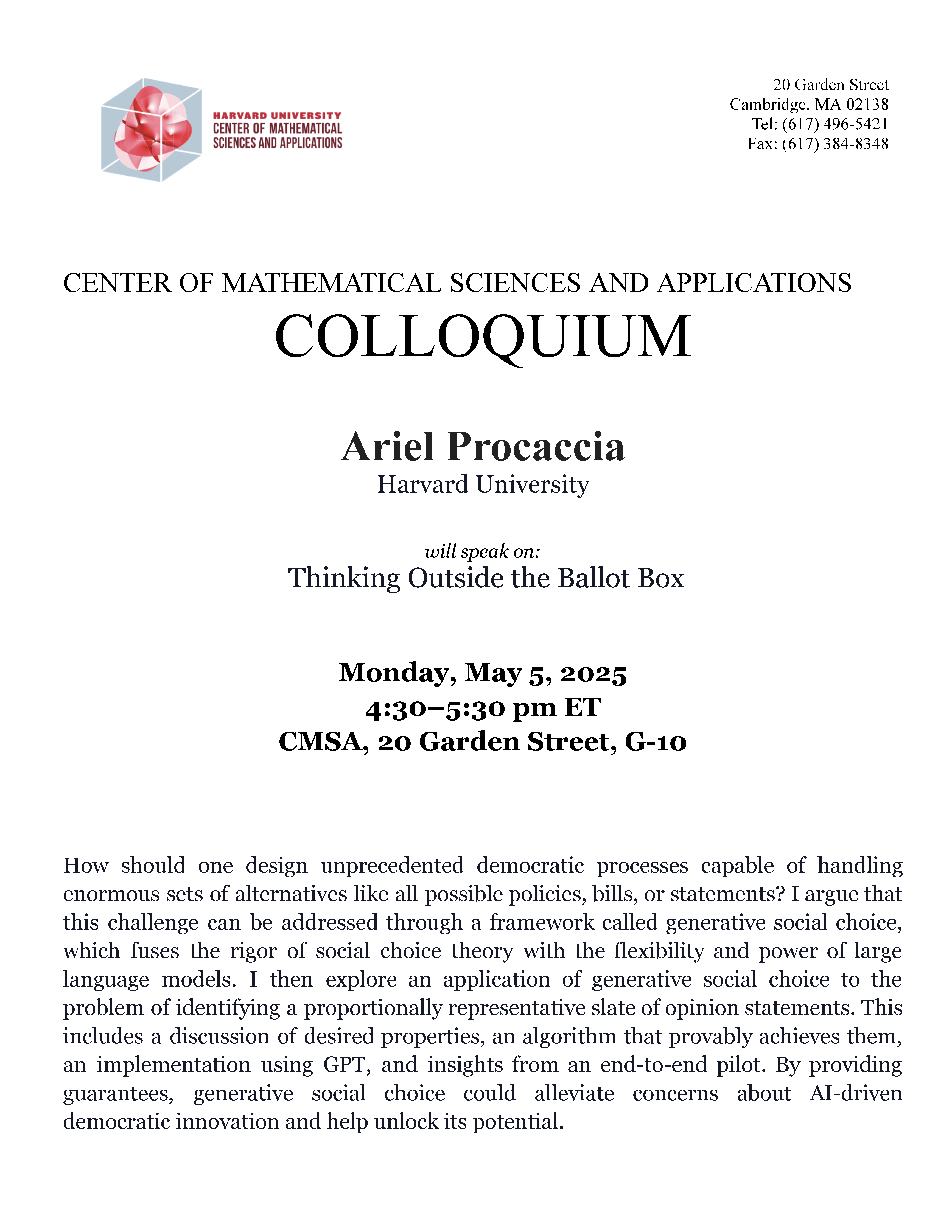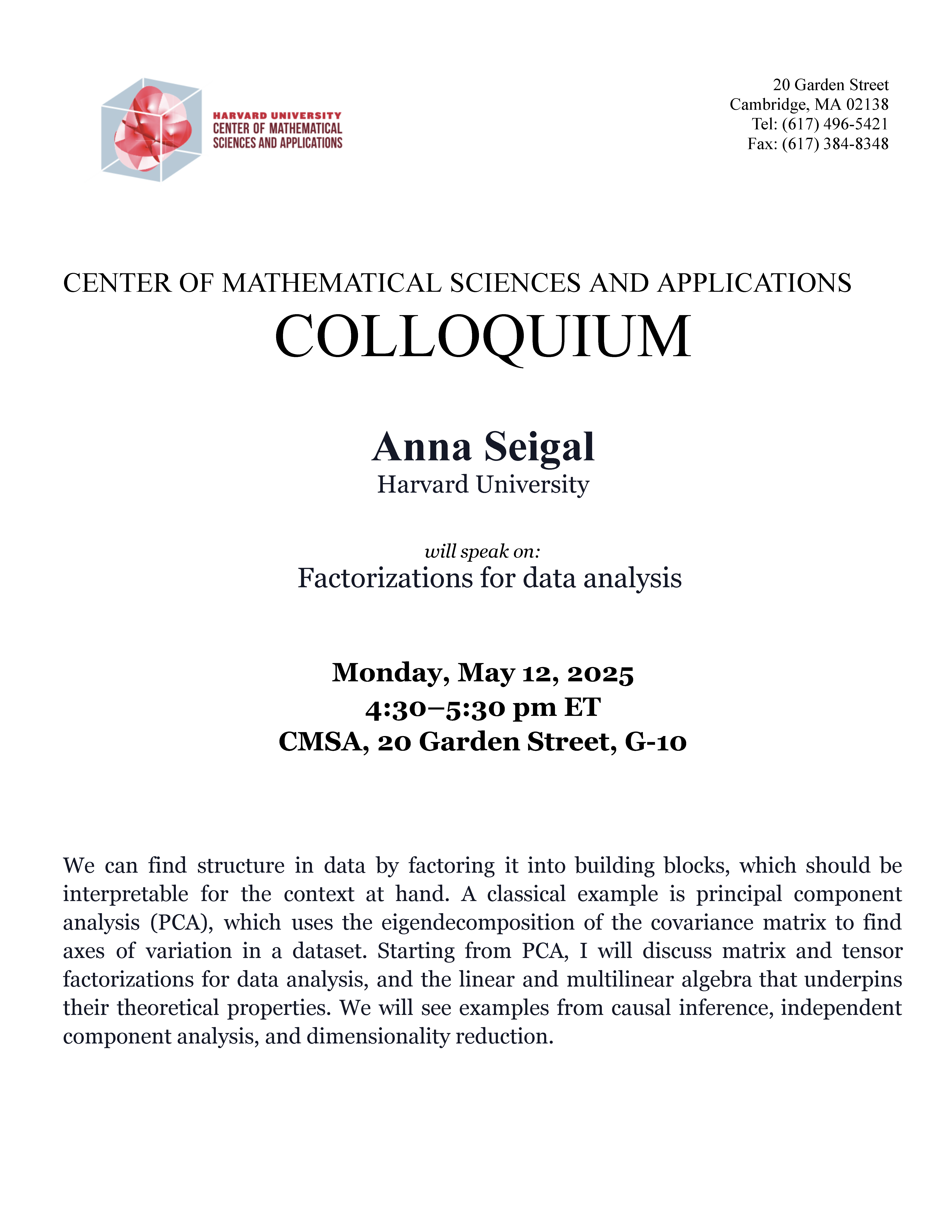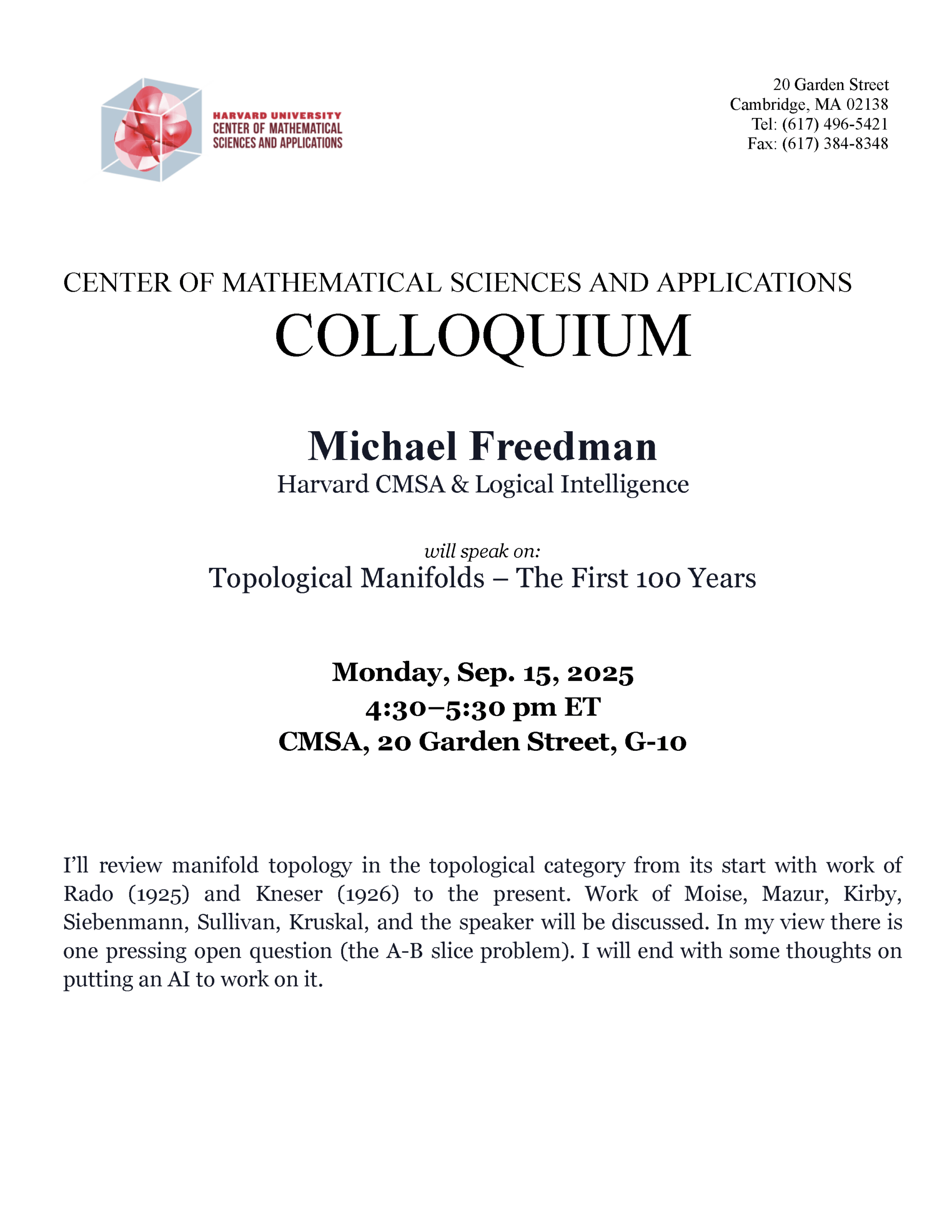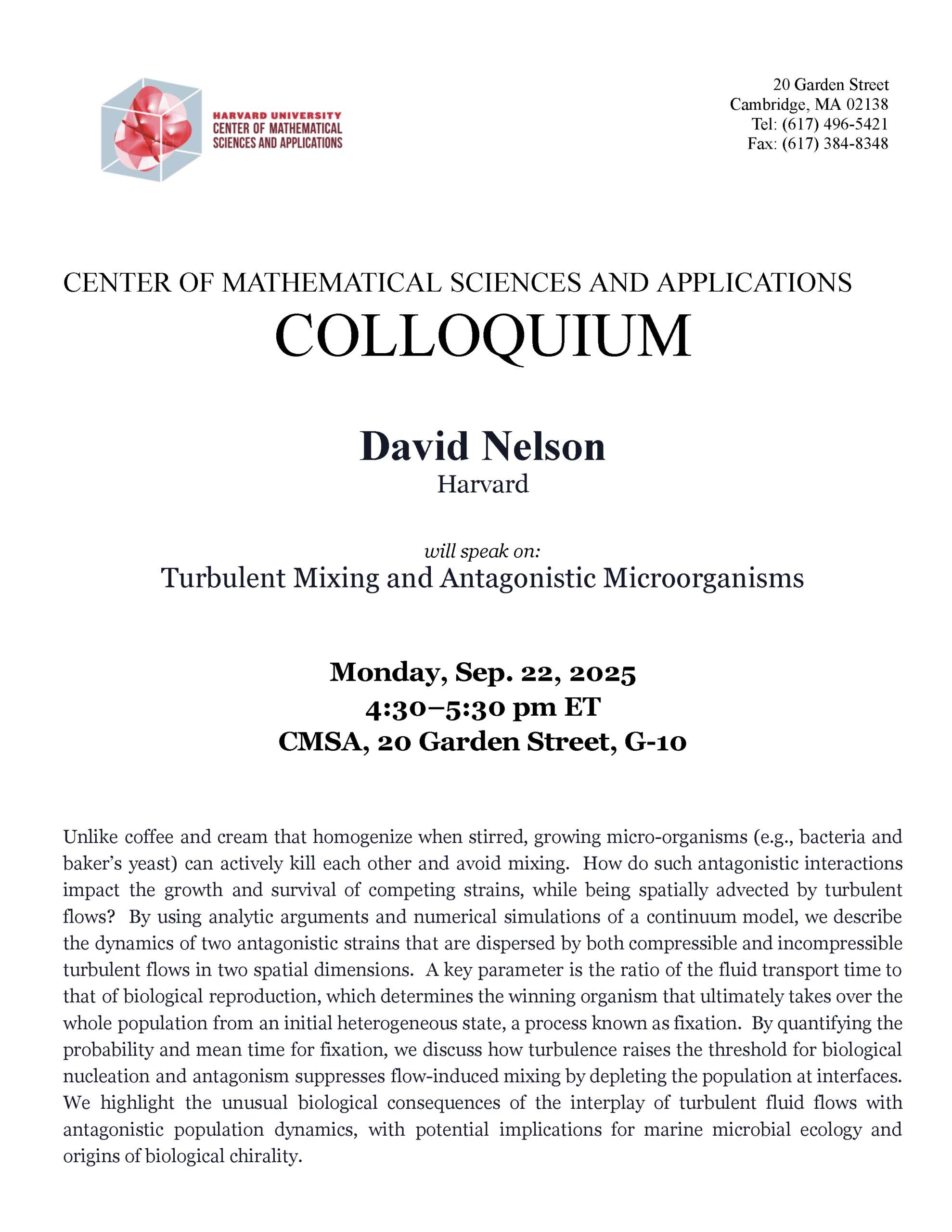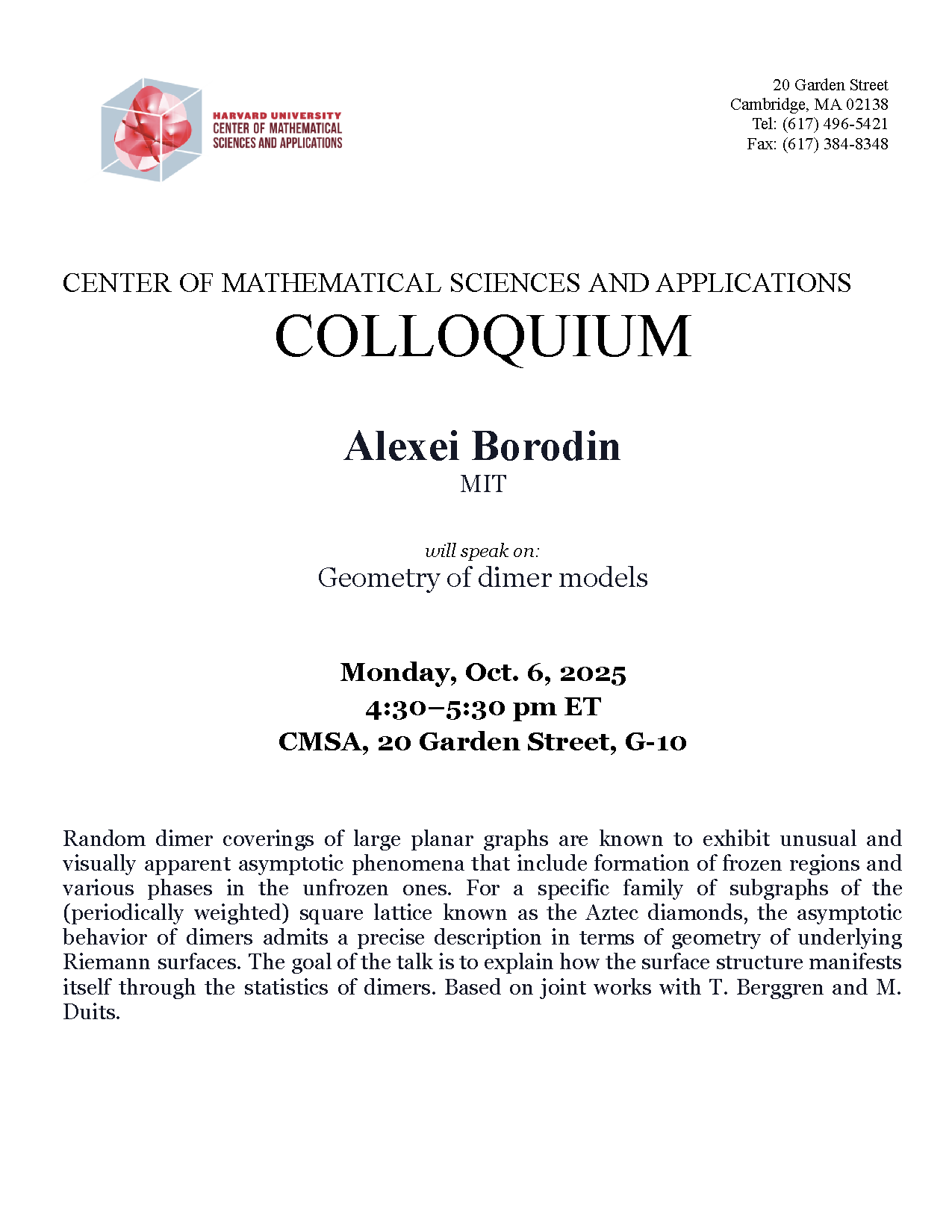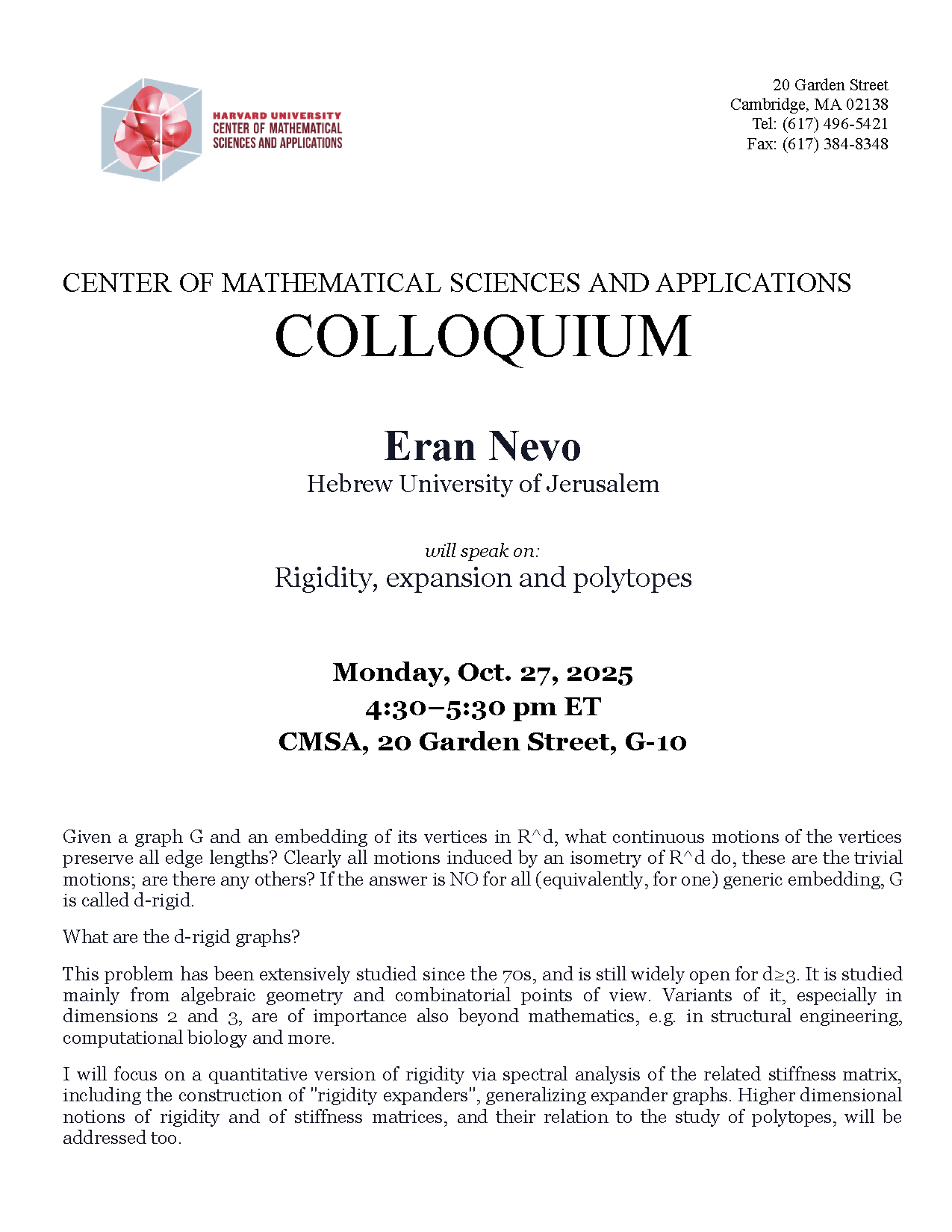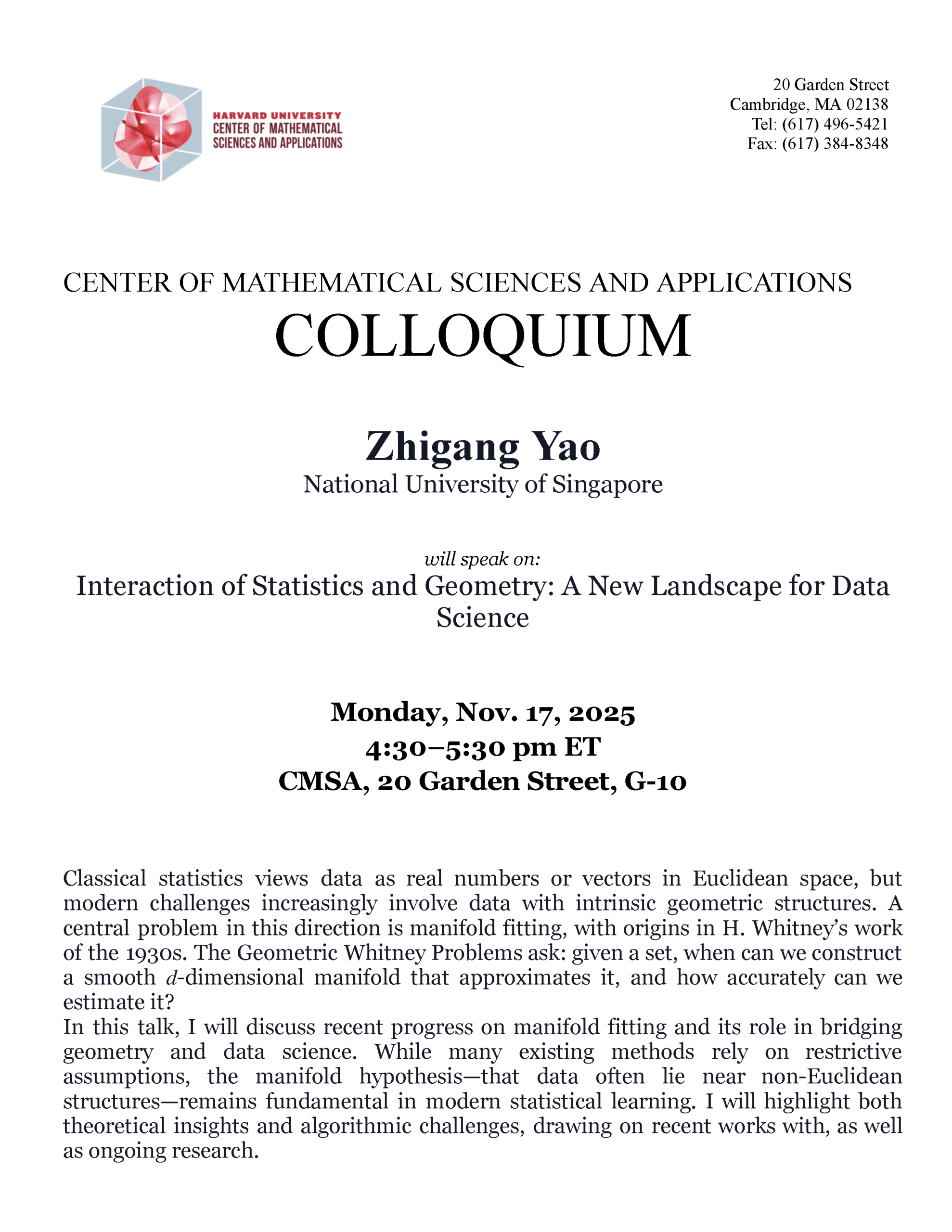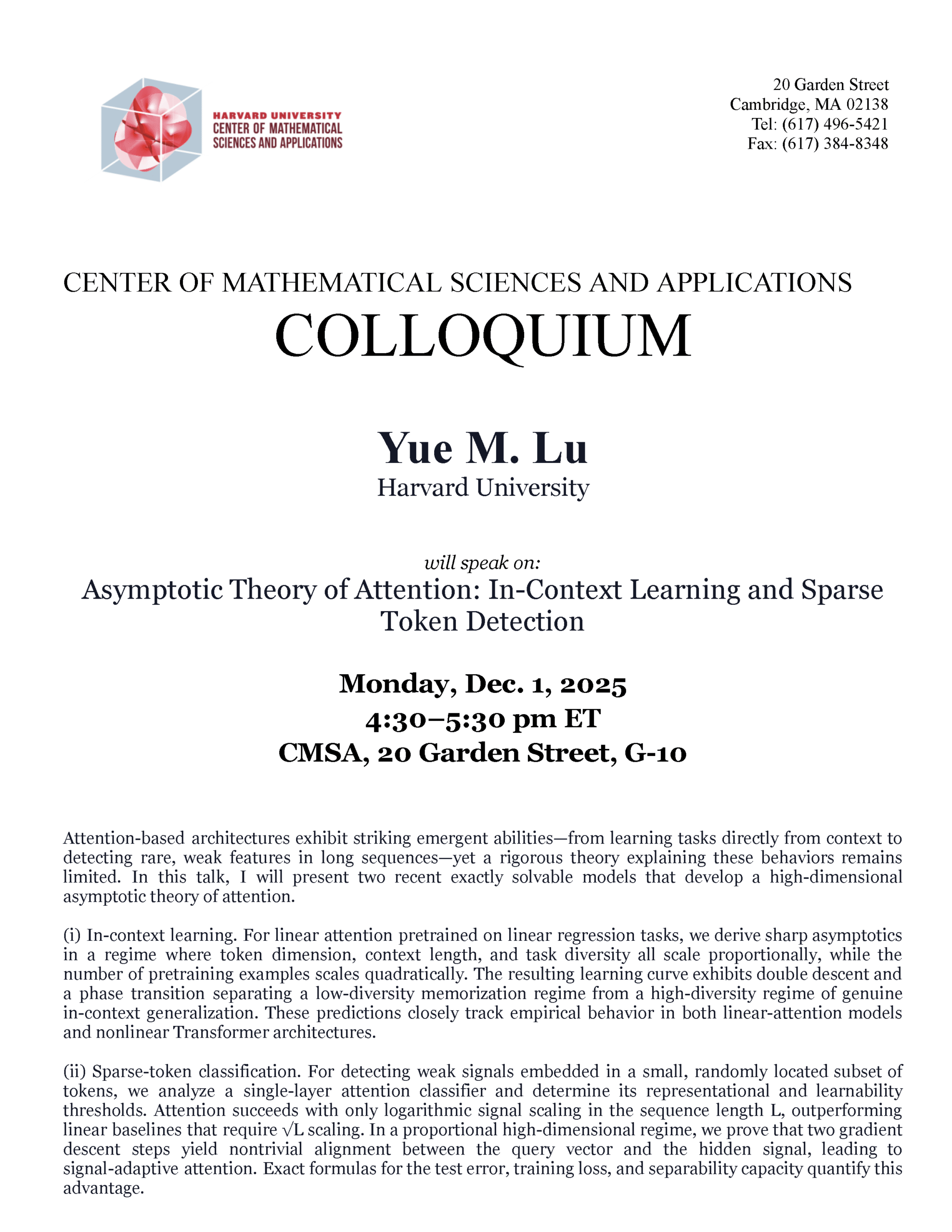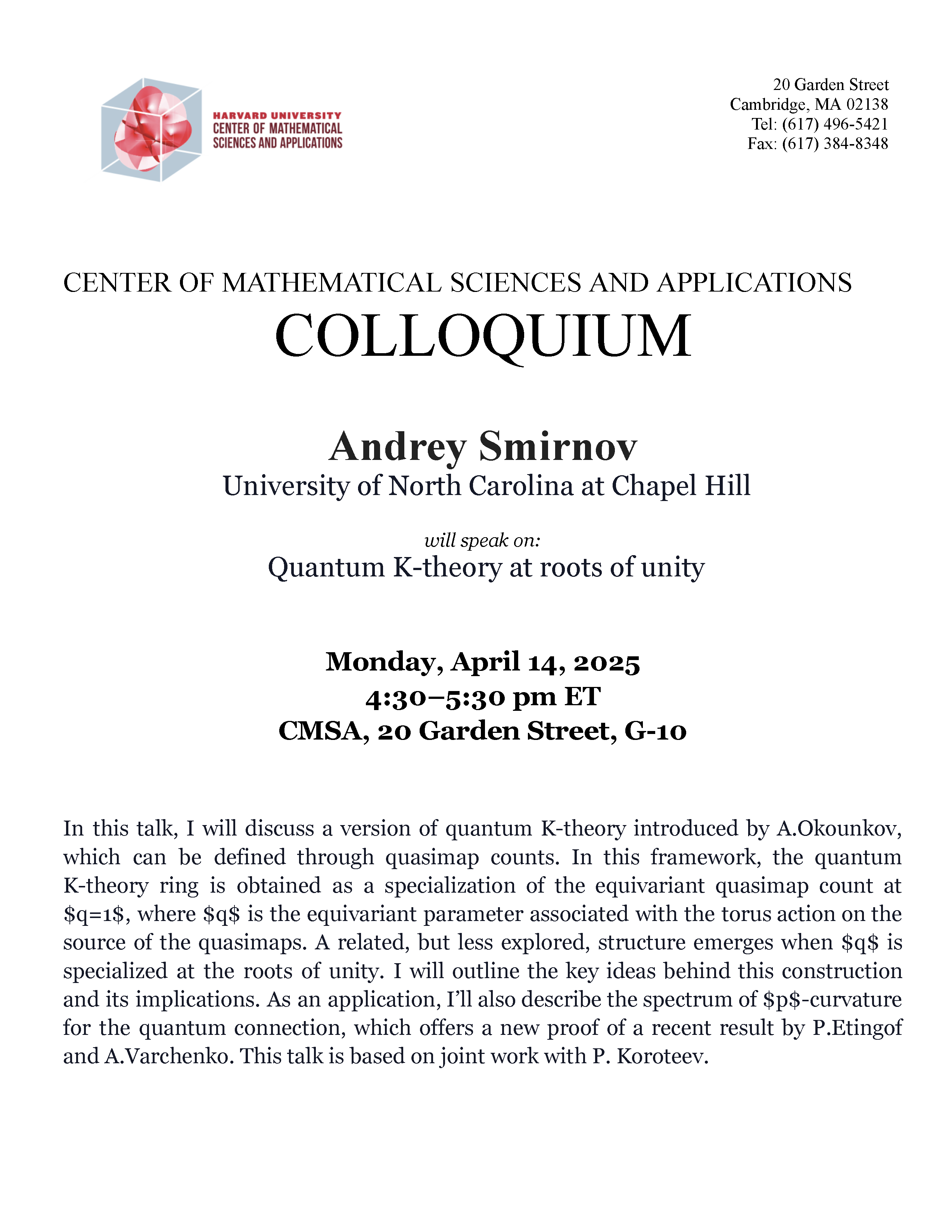
Quantum K-theory at roots of unity
CMSA Room G10 CMSA, 20 Garden Street, Cambridge, MA, United StatesColloquium Speaker: Andrey Smirnov, University of North Carolina at Chapel Hill Title: Quantum K-theory at roots of unity Abstract: In this talk, I will discuss a version of quantum K-theory introduced by A.Okounkov, which can be defined through quasimap counts. In this framework, the quantum K-theory ring is obtained as a specialization of the equivariant […]

